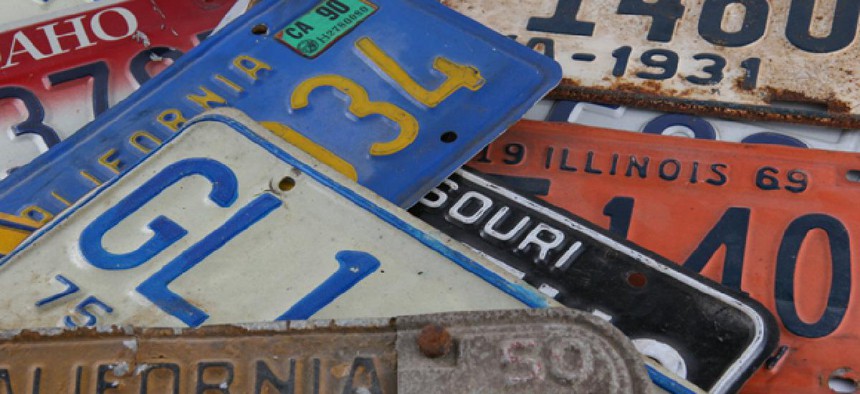DHS yanks deal to use license plate database to track illegal immigrants

Katrina Brown/Shutterstock.com
Another contractor claims to provide the same service, upending the award.
The Homeland Security Department has halted today's planned purchase of a geo-tracking service that displays captured images of license plates to hunt for runaway illegal immigrants, DHS officials said.
Initially, on July 5, Immigration and Customs Enforcement, an arm of DHS, announced a deal with Vigilant Video to access a repository of more than 685 million tags after the agency's Google search and an inquiry to the General Services Administration turned up no competitors. But another vendor has come forward claiming to sell the same vehicle-tracking features, ICE officials said Tuesday. The agency did not disclose the name of the new company.
“Currently, the contract in question has not been awarded, as ICE is continuing to evaluate the capabilities of multiple vendors to provide this service,” ICE spokeswoman Danielle Bennett said in a statement. “ICE is focused on smart and effective immigration enforcement, which prioritizes the removal of convicted criminal aliens, threats to national security, recent border crossers, illegal re-entrants and immigration fugitives.”
Agency officials said they expect to finish assessing the newcomer’s offering within the next few weeks. Bennett said of the Vigilant Video monitoring program, “ICE is currently looking into the benefits of utilizing a widely-used mobile law enforcement database tool, which would allow officers to identify the whereabouts of vehicles registered in the system, in order to better locate and apprehend at-large convicted criminal aliens."
Only the agency’s Dallas field office had requested the surveillance tool, called the National Vehicle Location Service, so it is not yet known whether other regions will make use of either technology. Other ICE offices are testing the concepts, officials later said. Under the $24,592 five-year agreement, the Vigilant Video application would be accessible via cellphone. ICE has not decided whether it will use the phone functionality, officials said on Tuesday.
This story was updated to describe the potential scope of the technology deployment.






